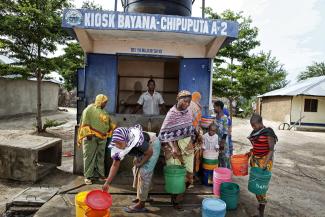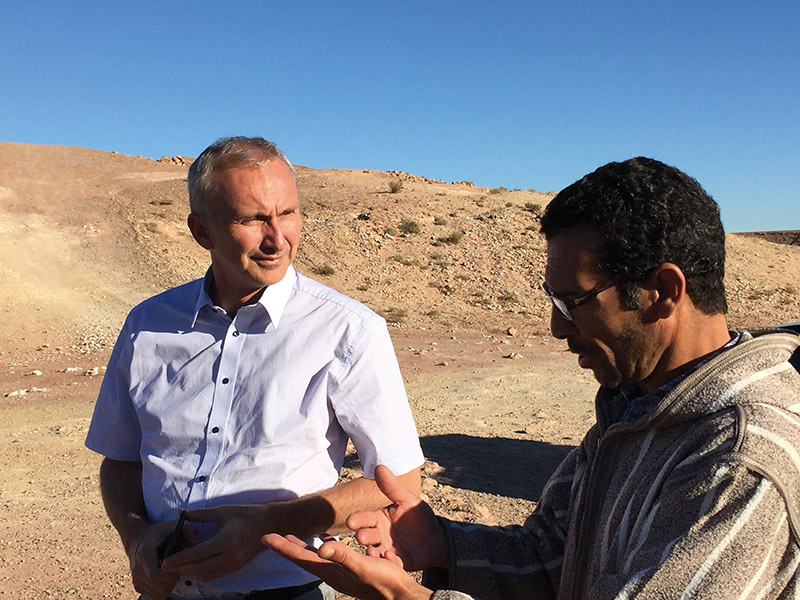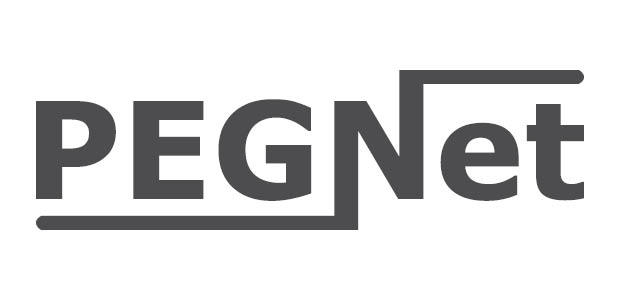International cooperation
Averting “Day Zero”

Water supply and sanitation are fundamental requirements for sustainable development. Giving everyone access to clean water and sanitary facilities is a core demand of the UN Sustainable Development Goal 6 (SDG 6). As two thirds of the world population will live in cities 20 years from now, cities are of particular concern (target 11). The UN reckons the urban population of Africa will triple to 1.2 billion by 2050.
In absolute figures, considerable progress has been made in recent decades on improving water supply in sub-Saharan cities. From 2000 to 2015, about an additional 80 million people got access to piped drinking water. The problem is that the urban population grew by around 180 million in that time span, so in relative terms, urban water-supply coverage has actually deteriorated. While two-thirds of city-dwellers had access to drinking water in 2000, the figure fell to just over half by 2015. The downward trend has not been stopped.
Countries such as Nigeria, Kenya, Zimbabwe and even parts of South Africa have had to declare water emergencies recently. They are not the only countries in crisis, facing the prospect of “Day Zero”, the day on which water runs out in a major agglomeration.
Since the mid-1990s, many countries in Africa have reformed their water sectors – mostly with international support. New water policies and laws were adopted, autonomous municipal utilities were created and regulatory authorities were established. Governments and donors furnished additional funding to improve supply systems.
Nonetheless, more needs to be done. Global investments worth $ 114 billion per year are required to ensure availability of clean drinking water and sanitation for all by 2030. That is three times the funding that is being made available currently.
So what can be done to make German development policy more effective, especially in sub-Saharan Africa? We make four proposals, drawing on the experience of the past 25 years.
Proposal 1: Ensure resilience
Water-supply systems must cope with long-term stress factors such as further urban growth and shock events such as floods or droughts which are aggravated by climate change. Very few cities are prepared appropriately, so development policy should do more to strengthen urban resilience.
Urban resilience is the capacity of an urban system – including its people, institutions and private-sector businesses – to recover after a shock or a situation of stress. Resilience depends on adaptive and preventive action. To strengthen water resilience, development programmes should do the following things:
- Consider the entire water cycle and promote more effective water-cycle management. Utilities should invest more in protecting water resources.
- Improve governance on water issues at the municipal level involving government agencies, the private sector and civil society.
- Infrastructure planning needs to be multifunctional and integrated. That means more investment must flow into “green infrastructure”. The point is that green spaces can double up as soakaways and rain-storage facilities. That will prove useful in the next heat wave or drought.
Proposal 2: Focus on competent utility management
Water utilities play a central role. As operators of critical infrastructure, they need to be economically viable. In many countries, the establishment of independent public-service companies was an important step forward.
Today, even some very poor countries have efficient utilities. Top performers include ONEA in Burkina Faso, NYEWASCO in Kenya and NWSC in Uganda. They outperform other water companies in the region, providing for more than 90 % of the urban people, even in marginalised areas on urban fringes. These utilities run cost-effective operations and have reduced water losses.
Success crucially depends on corporate governance. Managers have eliminated inefficient practices, improved service quality and ensured that the water supply system reaches everyone. Skills training and human resources development are important, but the crucial thing is the management’s willingness to embrace change.
Future development programmes should thus tackle the following issues:
- Promotion of water companies should be more systematically linked to utilities’ own efforts and proven performance.
- For incentives to be effective, development interventions must become more flexible. There needs to be a back-out option when agreed standards are not met and no serious reform efforts are discernible. Both global and national approaches permit flexible financing, and they should be taken.
- Partnerships of municipal water utilities in Africa with German counterparts make sense. They should be intensified – in particular in regard to waste-water treatment.
Proposal 3: Promote national water- sector financing
A comparison of five countries shows that even poor countries can build adequate urban water infrastructure and supply almost every urban household. Professional competence and adequate funding are what matters. Burkina Faso, for example, invested almost 0.4 % of its gross domestic product – just under nine Dollar per urban dweller a year – in urban water infrastructure from 2005 to 2015. Public water-supply systems now serve more than 90 % of the urban population. This achievement puts Burkina Faso ahead of most other countries in the region.
Since the early 2000s, Burkina’s government and the national utility ONEA have engaged in professional financial planning and systematically accounted for the use of the money invested. The Ministry of Finance is involved in a supervisory capacity, and it has boosted confidence, including among donors. At the same time, ONEA has managed to raise water tariffs to a level that is both economically sustainable and affordable for poor people.
Development programmes should pay attention to the following points:
- Underlying framework conditions of sector financing should be addressed by advisory services. Investment planning is a challenging task. It should be carried out by professional financing institutions in partner countries. To increase transparency and efficiency as required, these institutions should be made accountable to the public, the government and donors.
- Utilities’ operating and maintenance costs should be covered by water fees (and where justified by government transfers). Unless that is ensured, donors should not lend support.
- In the medium term, donor institutions should grant developmental loans in partner countries’ local currencies. Otherwise, exchange-rate volatility is likely to make debts unsustainable. Moreover, development agencies should foster the cooperation of well-managed water companies with local banks so the utilities will get better loan conditions.
Proposal 4: Focus on under-supplied communities
Where marginalised communities’ water supply is insufficient, people are often forced to buy contaminated water from informal water vendors at high prices. German development policy should therefore focus more on prioritising the expansion of urban supply systems to informal settlements.
In such settings, grants rather than loans should be the instrument of choice for supporting last mile extensions to the households. By contrast, treatment and distribution plants – the “big” infrastructure for water collection – should be financed as far as possible through loans. That is true of sewage treatment systems too.
National financing institutions are better suited than international ones for promoting short to medium-term investment in last mile infrastructure. To ensure marginalised communities are not neglected, donor governments should disburse 10 to 15 % of their water-sector funding as earmarked grants – preferably through national poverty funds.
In the foreseeable future, it will be neither possible nor financeable to connect every household in African cities to piped water in the household. For the time being, the viable solution is public taps and water kiosks that are operated by utility companies. That is how two thirds of urban Africans now get their drinking water.
Our proposals are in line with both SDG 6 and the water strategy of Germany’s Federal Ministry for Economic Cooperation and Development (BMZ). The preconditions are thus in place for implementing what we propose. Important partners of Germany, such as the Netherlands, Sweden and France, are also prepared to take such action. This opportunity must not be missed.
Links
The content of the article is based on two GIZ studies examining the impacts of water sector reform and investment in five countries from 2005 to 2015. They are available online:
Part 1: https://www.oecd.org/water/GIZ_2018_Access_Study_Part%20I_Synthesis_Report.pdf
Daniel Nordmann works as a policy advisor for the GIZ Sector Programme Sustainable Water Policy. He is currently on secondment to KfW Development Bank.
daniel.nordmann@giz.de
Helmut Lang works at the GIZ Competence Centre Water, Waste Water and Solid Waste.
helmut.lang@giz.de
Katrin Gronemeier works for GIZ and advises the BMZ on sustainable water policy.
katrin.gronemeier@giz.de












